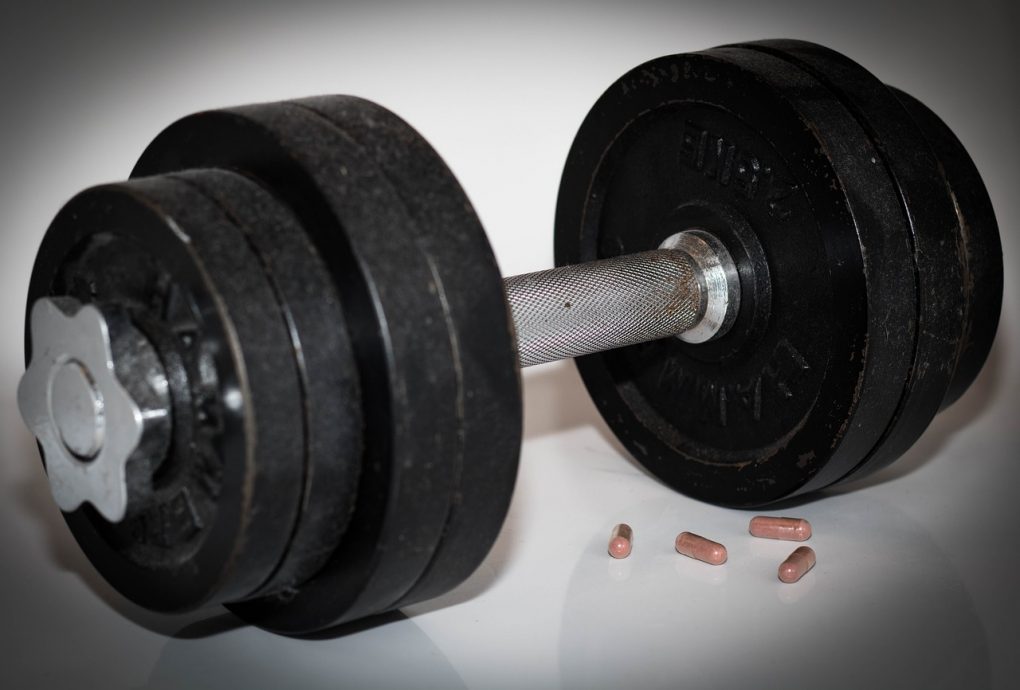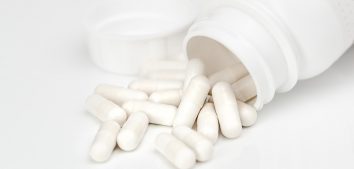
The Athlete’s Gut
How does sport damage our digestive tract and what can we do about it?
It is said that sport equals health. Physical activity has a positive effect on physical and mental well-being, reduces the risk of cardiovascular disease, metabolic disorders and even … depression. But remember the well-known words of Paracelsus “The dose makes the poison”.
The first signals
So ask yourself when does physical activity cease to have a positive impact on your health? This question is especially important for those of you who cannot imagine life without sport (hello! :)), and yet for some time their intestines have not been working quite well. At the same time, the level of regeneration is getting worse and the sports results are no longer satisfactory…
Moderate physical exertion on your body amounts to about 30 minutes of training a day, at least five times a week. When we increase the amount of workouts, we always do so at the expense of the condition of our digestive tract.
There is even a special term “runner’s diarrhea” to describe digestive problems associated with certain types of physical activity, which suggests how often problems with the gastrointestinal tract are an integral part of sport, not only at a high level of performance, but also for those who consider themselves amateurs. But let’s face it: a dozen or so training units a week is certainly not what amateurs do…
A recipe for better results
Diarrhea, abdominal pain, flatulence, constipation, acid reflux into the esophagus, painful cramps, a feeling of fullness after a meal – these are often the first symptoms that the digestive tract lets us know that sport is not that good… What should you do then? Abandon physical activity or ignore the signals coming from the body? Well, neither!
It is necessary to implement rational actions leading to regeneration of the gastrointestinal tract, which, unfortunately, is systematically damaged during training … Answer the questions why physical effort can negatively affect the intestinal condition and what actions you have to take to take care of your digestive tract.
During physical activity, the blood must primarily be supplied to the skeletal muscles that make the effort. At this time, intestinal blood supply is definitely smaller, which may cause temporary endotoxemia – potentially toxic compounds temporarily accumulate in the gastrointestinal tract, and tissues are not sufficiently supplied with nutrients. Repeatedly repeated hypoxia of the intestinal epithelium often leads to damage to the intestinal barrier, which causes the insufficiently digested food particles and other undesirable elements to penetrate into the circulatory system and you’re only a step away from the adverse reaction of the immune system and the development of food intolerances.
Too much of a good thing!
Physical activity at a high level of intensity also leads to the development of oxidative stress, i.e. an imbalance in the process of producing and removing reactive oxygen species (the so-called free radicals). They intensify inflammation of the gastrointestinal epithelium. Of course, soon after training, the situation returns to normal and with a rational level of physical activity there is no development of gastric problems. But let’s think what happens when this type of situation lasts a dozen or even several dozen hours a week, for many months or years ..? Exactly! Eventually, intestinal epithelial damage occurs, the intestinal barrier is unsealed, gastrointestinal tract deterioration, and a number of gastrointestinal complaints develop. An additional problem is the deepening intestinal dysbiosis, i.e. reducing the number of health-promoting bacteria, while multiplying potentially pathogenic microflora. This problem is unfortunately common in athletes. Intestinal dysbiosis can contribute to gut problems, increasingly weak immunity, and even deterioration of mental condition or chronic fatigue syndrome. This delicate intestinal ecosystem is in fact extremely important for the proper functioning of our entire body.
Situations are further aggravated by the lifestyles of many athletes. I am talking primarily about restrictive diets or chronic use of a number of drugs, such as non-steroidal anti-inflammatory drugs (used in injuries).
Take care of your guts!
Remember that the digestive tract is not just a “tube” for digestion and absorption. This is where most of the cells of the immune system are located, here, in a healthy person, over 90% of serotonin (called the hormone of happiness) is produced. In addition, metabolites produced in the intestine act not only within the gastrointestinal tract, but also systemically.
It should not be surprising that the disruption of the intestinal microflora, damage to the intestinal barrier, and chronic inflammation in the gastrointestinal tract are not only intestinal complaints. Diarrhea, bloating or stomach ache are often just the beginning of problems. After many years of intense physical activity, athletes report deterioration of mood, activation of allergic diseases, and a problem with recurrent infections. This is largely due to the condition of the digestive tract that has been damaged for years.
So what to do when sport is an important part of our lives, and the digestive tract is becoming more common? First of all, restore the correct intestinal microflora! Knowing that physical activity can damage our microbiota, we should make friends with probiotics, i.e. live strains of bacteria, which support the reconstruction of the intestinal ecosystem. If we want to act prophylactically, it is worth buying a high-quality multi-graft probiotic, dedicated to physically active people, and to use it systematically, especially during the training period. However, in a situation where problems with the gastrointestinal tract appear more and more often, regeneration ability decreases and injuries or recurrent infections appear more and more often. However, it is a good idea to consider more intensive probiotic supplementation. A good solution is then to test your intestinal microflora and use individually tailored supplementation.
This is why top-class athletes often treat probiotics as an integral part of daily supplementation, and an increasing group of probiotics dedicated to athletes appears on the pharmacy shelves. Good condition of the digestive tract is not just a lack of diarrhea or stomach ache. This should also be considered as a global investment in health as good microflora means less inflammation, less infection, better regeneration, and greater motivation! And in the future it is more likely that the entire period of the sports career, and above all the time afterwards, will pass in good health.










Comments No Comments
Join the discussion…